Coronavirus Australia live news: Australia-Asia trade pact ‘most important since WTO’; Queue grows for Aussies to return
Australia has joined its Asian regional partners including powerhouses China and Japan to create the world’s largest single trade bloc.
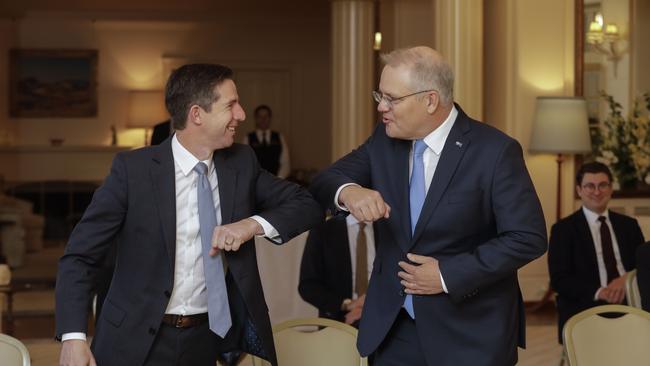
- Queue for entry to Australia grows amid overseas turmoil
- US daily caseload hits record 184,514
- Celebrations as Western Australia border reopens
- Covid delay to Santa’s slay
Welcome to The Weekend Australian’s rolling coverage of the coronavirus crisis.
Australia has become 'a victim of its own success’ in handling the coronavirus, with demand for return to the country growing. It comes as governments in Europe take drastic new action to curb the second wave and cases in the US hit an all-time high.
Rebecca Urban 10.30pm: Fears for pupils who logged off
Thousands of Victorian students stopped attending class or completing school work by the end of Victoria’s extended lockdown, sparking fears many could drop out of education for good.
Demand for services to support disengaged teenagers has surged in the wake of the pandemic, with the waiting list for the Andrews government’s multi-million-dollar Navigator program, which supports students at risk of not completing schooling, blowing out to six months.
Many schools are grappling with having to contact dozens of students who dropped off the radar as remote learning stretched to more than 20 weeks for some.
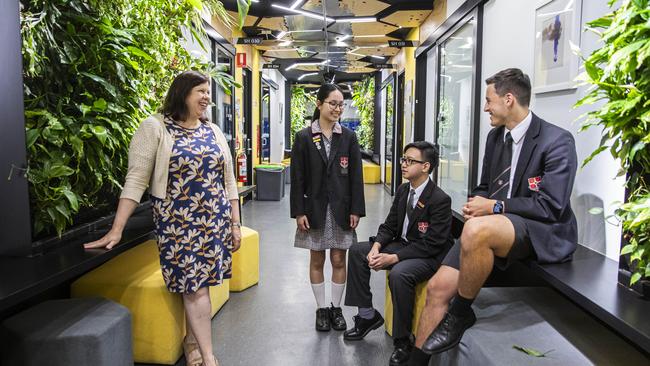
Stephen Lunn 9.45pm: Private aged care: the risks exposed
Residents in privately run nursing homes are almost four times as likely to be hospitalised for weight loss or malnutrition than those in government-run aged care homes.
And older Australians in for-profit nursing homes are five times more likely than those in government facilities to register a complaint about the home’s cleanliness or safety, and twice as likely to complain about the competence of the staff caring for them.
A study for the aged care royal commission, containing the most detailed analysis ever undertaken of residential aged care quality in Australia, finds government-run homes far outperform those run privately by not-for-profit and for-profit organisations. And smaller aged care homes with fewer than 30 beds had stronger results, the study shows.
Simon Benson 9pm: Vaccine plant to supply nation
The largest biotech and vaccine manufacturing plant in the southern hemisphere will be built in Australia under a $1.8bn deal to provide rapid response to future pandemics and provide the nation’s first mass-scale sovereign capability to defend against global health security threats.
An agreement between the federal government and pharmaceutical giant CSL, to be announced on Monday, is a major part of the government’s post-pandemic manufacturing strategy, and is expected to create 1300 biotech jobs.
The plant, to be built in Melbourne, will deliver the first population-wide pandemic and seasonal flu vaccines for Australians, quarantining the nation from global supply chain shortages or queues.
AFP 8.15pm: Greece bans gatherings ahead of uprising anniversary
Greek police have announced a ban on public gatherings of four or more people as hospitals were overwhelmed with coronavirus cases, ahead of the annual anniversary of a 1973 anti-junta uprising.
Greece said it would shut primary schools, kindergartens and daycare centres as coronavirus deaths crossed a thousand.
The anti-junta demonstration is a treasured anniversary for many Greeks, and more than 30,000 people demonstrated in Athens and other major cities last year under a heavy police presence.At least 24 people were killed in the 1973 crackdown, an event generally considered to have broken the junta’s grip on power and helped the restoration of democracy.
This year, however, all public gatherings of four or more people would be banned from 6am on Sunday to 9pm on Wednesday to stem the spread of coronavirus, police said in a statement.
Fines of €5000 ($8134) will be issued to legal entities like political parties and €3000 for individuals who organise gatherings, while those participating will be fined €300.
Citizens’ Protection Minister Michalis Chrysochoidis said on Friday that the events and marches commemorating the November 17 Athens Polytechnic student uprising will not take place this year.
“We did not celebrate March 25th or October 28th, we did not celebrate Easter, we did not celebrate any of the things that unite us in 2020. The same will be the case with the Polytechnic anniversary,” the minister said, referring to three national holidays that were not celebrated because of the coronavirus pandemic.
“The virus is the enemy and large gatherings are its main weapon,” he added, prompting opposition parties to pledge they would proceed with demonstrations.
READ MORE: A week without sex, exercise, alcohol or meat
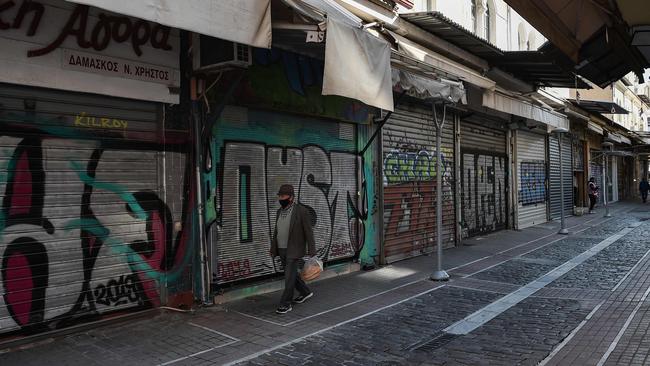
Emily Ritchie 7.30pm: Balancing a ‘perverse optimism’
While the pandemic has been a challenging and difficult time, the situation has also filled Circa’s artistic director Yaron Lifschitz with a “somewhat perverse” optimism.
“It has changed my art,” he said.
“A lot of my work previously had been quite post-apocalyptic and grim about things, but somehow — and perhaps perversely — COVID has filled me with a kind of optimism. As humans, we are adaptable and resilient and I’ve witnessed a lot of that. People figuring how to get on with their lives has been really inspiring.”
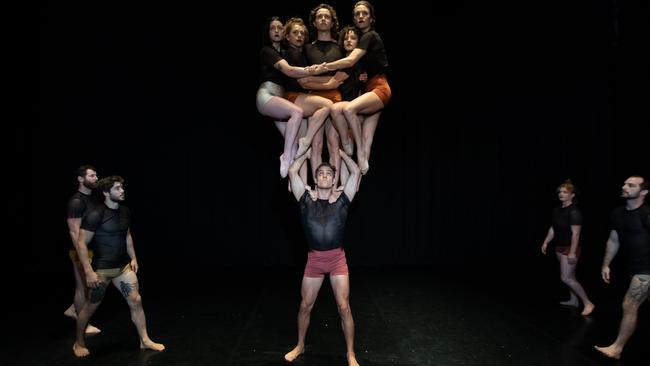
Matthew Denholm 7pm: Tourism split over parks development fuels boycott
A split in Tasmania’s $3bn tourism industry over development in national parks is fuelling a boycott by tourist operators of mandatory accreditation, amid plans for a rival industry body.
There appears to be a widening revolt by operators angry at their peak body’s backing for a state government push to encourage tourist projects inside national parks.
The Tourism Industry Council of Tasmania has backed the push and a proposal giving exclusive possession of world heritage Halls Island to one private operator.
Tour operators who believe development should occur on park fringes rather than in wilderness are refusing to renew their TICT accreditation, and discussing forming a new body.
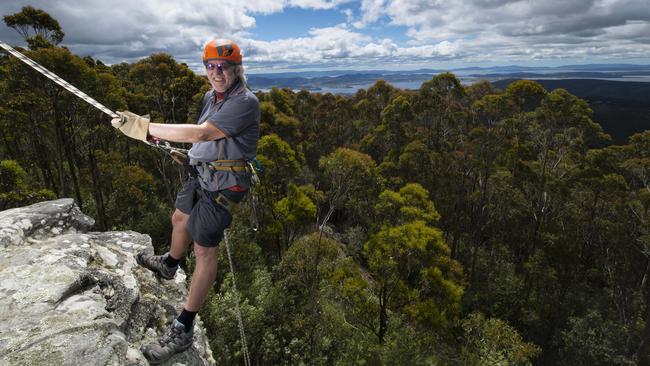
AFP 6.30pm: Virus curbs tighten as deaths pass 1.3 million
A swath of new restrictions to curtail a second wave of coronavirus infections were announced or came into force from Austria to Greece, Italy to Portugal on Saturday as the global death toll climbed above 1.3 million.
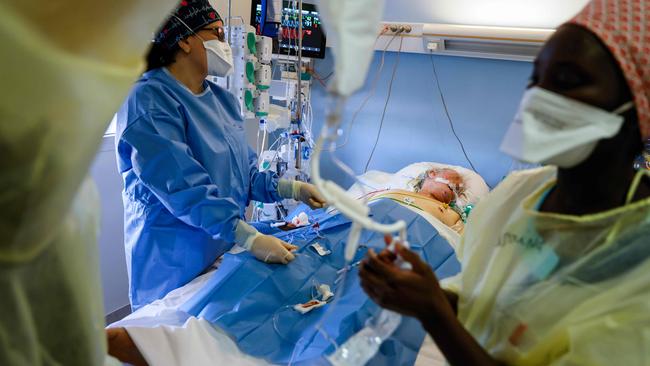
Tom Newton Dunn 6pm: Obesity added thousands to UK Covid death toll
Thousands of coronavirus deaths could have been avoided if British ministers had tackled the obesity crisis, England’s former chief medical officer says.
Professor Dame Sally Davies blames the UK’s high death toll on “a structural environment” that enabled junk food makers to encourage consumption.
The UK has one of the highest rates of obesity in the world and the second highest in Europe, with nearly one in three adults obese. Obesity, defined as a body mass index greater than 30, raises the risk of dying of COVID-19 by 48 per cent.
Last week Britain became the first country in Europe to pass a grim milestone, reaching more than 50,000 deaths from the coronavirus on official figures.
Davies said: “There is a direct correlation between obesity and a high mortality for Covid, and I’m highlighting that, as a nation, one of the reasons we have a problem with our weight ... is because of our structural environment to which advertising, portion size, and many other things come into play.”
READ MORE: Vaccine hope: ‘The cavalry is on its way’
AFP 5.15pm: Hospital fire kills 10 Covid patients in Romania
Ten Covid-19 patients were killed and others were in critical condition after fire broke out in an intensive care unit in northeast Romania on Saturday, a hospital spokesperson said.
The fire occurred in the intensive care of the hospital in the town of Piatra Neamt. It was under control an hour later by the emergency services.
“Ten people have been declared dead and seven people are in critical condition,” including a doctor, hospital spokeswoman Irina Popa said on Sunday.
Eight of the victims died in the flames and two others were pronounced dead following their evacuation.
The doctor on duty, who tried to help the victims, suffered second and third degree burns to 80 per cent of his body, the rescue service said.
The cause of the blaze was unclear and the prosecutor general opened an enquiry into the tragedy. The health ministry suggested the fire could have been caused by an electrical short circuit.
The local prefect set up a crisis cell and Health Minister Nelu Tataru was expected to visit the scene.
Largely spared during when the first wave of the coronavirus hit Europe, Romania has in recent weekly seen mounting numbers of cases and hospitalisations.
On Saturday it reported 129 new virus fatalities, bringing total deaths to 8813 since the start of the pandemic.
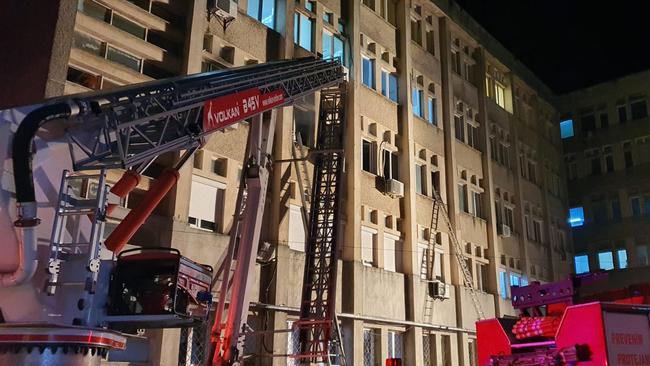
Imogen Reid 4.30pm SA records three new locally acquired cases
Three new cases of locally transmitted COVID-19 have been registered in South Australia after a worker from a quarantine hotel infected their family members.
Chief Public Health Officer Nicola Spurrier revealed an 80-year-old woman was diagnosed on Saturday along with a woman in her 50s and a man in his 60s who returned a positive test result on Sunday.
“One of those people works in our medi-hotels,” Professor Spurrier said. “This is where we consider the source to be.”
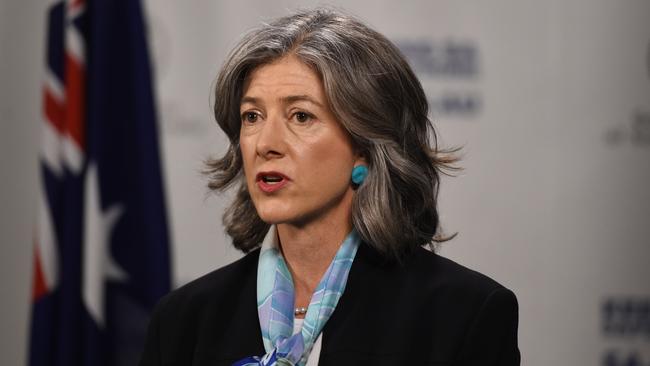
Urgent contact tracing is underway to track any potential links to the source.
READ MORE: The gene geniuses who’ll crush COVID-19 with mRNA vaccine
Victoria Laurie 4.00pm: ‘International travel is our biggest risk’: McGowan
WA premier Mark McGowan says Australia should not open up its international borders until a vaccine becomes available.
If the Commonwealth decided to make other arrangements with countries he believes are high risk, he would reintroduce hard borders “overnight”. “We are very risk averse in this government.”
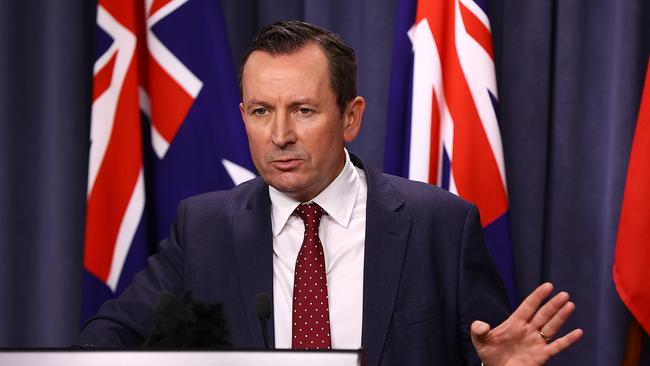
“We know that if we just open up and let people from other countries come in without quarantining, that would be a mistake.” Currently, 2168 people are in state government-operated hotel quarantine in Perth.
Overnight, Western Australia had four new Covid-positive cases, all of Australians returning from overseas. All are in hotel quarantine and were picked up under the testing regime.
“That shows international travel is our biggest risk, that is Australians returning home,” he said. “Quarantining them is the right way to go and keeps our citizens safe.”
A further three international flights carrying 1000 passengers will arrive in Perth on Sunday.
READ MORE: Celebrations as WA border reopens
Robert Wall 3.40pm: Elon Musk ‘likely has moderate case’ of Covid-19
Tesla Inc. Chief Executive Elon Musk, who has repeatedly played down the risk of the coronavirus since early in the pandemic, says he tested positive for Covid-19 and sought to raise doubts about the validity of such testing more broadly.
Am getting wildly different results from different labs, but most likely I have a moderate case of covid. My symptoms are that of a minor cold, which is no surprise, since a coronavirus is a type of cold.
— Elon Musk (@elonmusk) November 14, 2020
Mr. Musk said on Twitter a Thursday night saliva sample came back positive for the virus. He took a PCR test after earlier rapid-response tests he had taken returned both positive and negative results.
The rapid-response test isn’t considered as accurate as the PCR, or polymerase chain reaction, test that typically involves a nasal or throat swab.
Mr. Musk said Saturday he was getting another test with results expected Sunday. “Almost no symptoms today, so hopefully better results,” he tweeted.
Interesting. My Thursday night saliva sample came back today with N1 gene (unique to cov2) showing at cycle 26 & N3 (generic sars) at 24. I get results of today’s test tomorrow. Almost no symptoms today, so hopefully better results.
— Elon Musk (@elonmusk) November 14, 2020
After the earlier mixed outcome of the rapid-response tests, Mr. Musk late Thursday tweeted “Something extremely bogus is going on,” later adding, “If it’s happening to me, it’s happening to others.” His comments about the results met with a chorus of Twitter followers who shared skepticism about the tests, alleging high false-positive rates and widespread misdiagnosis. Among those making the claims were groups and individuals who have publicly opposed the lockdowns and other restrictions mandated by governments to try to stem the spread of the virus.
Something extremely bogus is going on. Was tested for covid four times today. Two tests came back negative, two came back positive. Same machine, same test, same nurse. Rapid antigen test from BD.
— Elon Musk (@elonmusk) November 13, 2020
The symptoms Mr. Musk initially said he had experienced were mild “sniffles & cough & slight fever past few days.” If a diagnosis is confirmed, Mr. Musk would become one of several CEOs to reveal they contracted the virus. Morgan Stanley CEO James Gorman, NBCUniversal CEO Jeff Shell and Hewlett-Packard Enterprise Co. CEO Antonio Neri revealed positive diagnoses earlier this year.
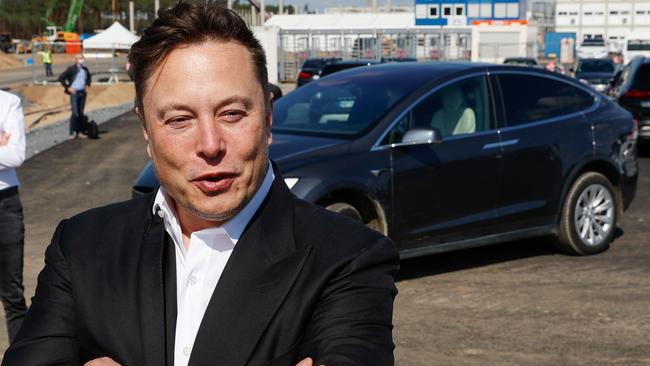
In March, Mr. Musk said there would likely be close to zero new Covid-19 cases in the U.S. by the end of April. The outspoken CEO also said in March: “My guess is that the panic will cause more harm than the virus, if that hasn’t happened already.” Mr. Musk disclosed the test results ahead of a planned rocket launch by Space Exploration Technologies Corp., where he also is CEO.
Wall Street Journal
READ MORE: Together we’ll bounce back from this crisis
Bernard Salt 3.20pm: Aussie cities to shrink as COVID leaves its mark
One of the concerns arising from the coming of the coronavirus is the impact the contagion and its management has had on the central business districts of our largest cities, and especially Melbourne given the extent of the lockdown in Victoria.
The theory is that office workers may have become conditioned to working from home, and that employers will be only too willing to support a permanent work-from-home arrangement to relinquish some of the cost of accommodation in commercial office buildings.
And that’s just for starters. There’s also the issue that Australia’s hard border closures have halted international visitor arrivals, which affects the demand for city hotel accommodation.

And unless a solution is found to admit foreign students before the beginning of the 2021 academic year, there’s the possibility that yet another tranche (year) of the international student market will be lost.
Indeed, one of the great new additions to the CBD in recent years has been the rise of the student accommodation industry, which has injected youth, life and energy into the city centre and its fringe.
The question city planners, commercial office building owners, investors and others must be asking right now is this: what will be the long-term effects of the pandemic on the vibrancy, the value and the role of the CBD?
Read the full story here
Patrick Commins 2.15pm: Australian trade move ‘most important since WTO’
Australia has joined its Asian regional partners including powerhouses China and Japan to create the world’s largest single trade bloc, in a move being hailed as the most important trade agreement since the World Trade Organisation was established in 1994.
Trade minister Simon Birmingham on Sunday announced the formal establishment of the Regional Comprehensive Economic Partnership, which will knit together an array of bilateral agreements into an European Union-style single set of rules governing the Indo-Pacific region.
“This is a huge accomplishment,” Senator Birmingham said of a deal that was eight years in the making and will cover a region accounting for 30 per cent of the world’s population and total economic output.
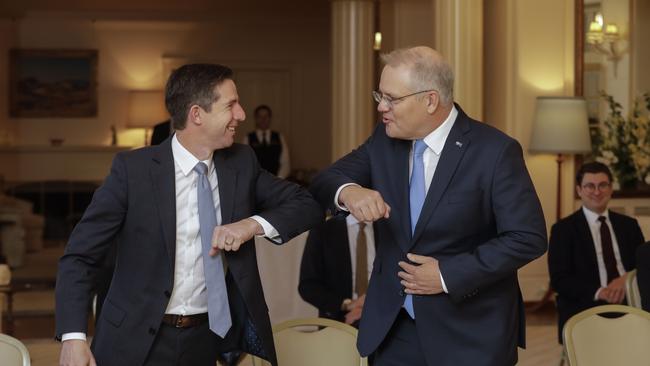
“This is an incredibly important agreement in terms of the timing,” he said. “Symbolically, we see huge pressures globally on the trading system and of course pressures that Australia faces, too. This agreement signifies that our region, which has been the most economically dynamic region of the world in recent decades, is still committed to openness”.
Of the 16 countries involved in 32 rounds of negotiations, only India failed to sign up to RCEP.
Perth USAsia research director Jeffrey Wilson, who has spent the past decade working in and around the RCEP progress, said while the deal would not open up any new markets or lower tariffs for Australian exporters, it would radically simplify the process by which local businesses are able to do business with other signatories.
“It’s a big deal,” Mr Wilson said. “This is the biggest trade deal since the WTO was created.”
“Over the next six months this is not going to address the fact there are no flights for cargo” as a result of the pandemic, he said. “But when the covers come up this will supercharge our ability to get back to where we were before COVID.”
READ MORE: James Kirby — Growth stocks still the best bet
Victoria Laurie 1.50pm: Thousands pour into WA as border rules lift
Thousands of people have returned to Western Australia over the weekend, after a 222-day hard border closure was lifted at midnight on Friday night.
Under the state’s new controlled border regulations, 2087 people arrived from other states by road or by air.
On Saturday 449 international passengers arrived on four flights, with another 1392 domestic passengers on 14 flights.
Premier Mark McGowan said nobody failed their health screening or temperature test. He said everyone entering was processed without incident and several passengers requested Covid-19 testing but were asymptomatic.
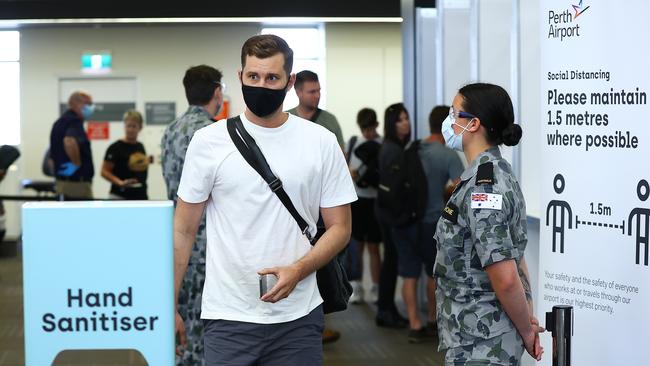
Mr McGowan says he was moved to see scenes of mothers greeting daughters, and grandparents reunited with grandchildren after being separated for as long as eight months. “It’s a lovely event to see them reunite so safely.”
He says WA’s controlled border is safe. Only Victorians and people from New South Wales will need to quarantine for two weeks and be tested for COVID-19, a condition that “will continue until such time as we consider it safe not to do so.”
READ MORE: Second wave ‘has smashed the economy’
Rachel Baxendale 1.30pm: Victoria’s $5.3bn housing pledge ‘to create 10,000 jobs’
The Andrews government has announced an unprecedented $5.3bn investment in public and affordable housing, pledging to build more than 12,000 dwellings over the next four years, creating approximately 10,000 jobs over that period.
The announcement comes after decades of underfunding of public housing in a state where Labor has been in power for 16 of the past 20 years, with Victoria until now having the lowest proportion of public housing per capita compared to other Australian states and territories, and one of the lowest in the OECD.
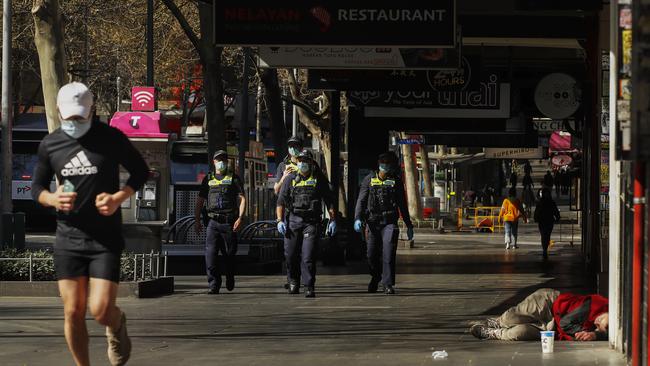
Victorian Premier Daniel Andrews said that when the $5.3bn was added to $500m announced earlier this year for renovation of existing public housing stock, the investment in social and affordable housing was the “biggest of its kind anywhere in our country, at any time”.
“This is all about securing livelihoods, many, many jobs, and giving that construction industry the certainty they need after a very challenging year,” Mr Andrews said.
“Of course they’re not jobs for their own sake. Each of those 10,000 (jobs) a year for each of the next four years with the certainty of that line of work, and spend and invest, that’s all about creating economic activity and economic benefit for every single Victorian.”
Read the full story here.
Tom Newton Dunn 1pm: Obesity adding thousands to virus death toll
Thousands of coronavirus deaths could have been avoided if British ministers had tackled the obesity crisis, England’s former chief medical officer says today.
Professor Dame Sally Davies blames the UK’s high death toll on “a structural environment” that enabled junk food makers to encourage consumption.
The UK has one of the highest rates of obesity in the world and the second highest in Europe, with nearly one in three adults obese. Obesity, defined as a body mass index greater than 30, raises the risk of dying of COVID-19 by 48 per cent.
Last week Britain became the first country in Europe to pass a grim milestone, reaching more than 50,000 deaths from the coronavirus on official figures.
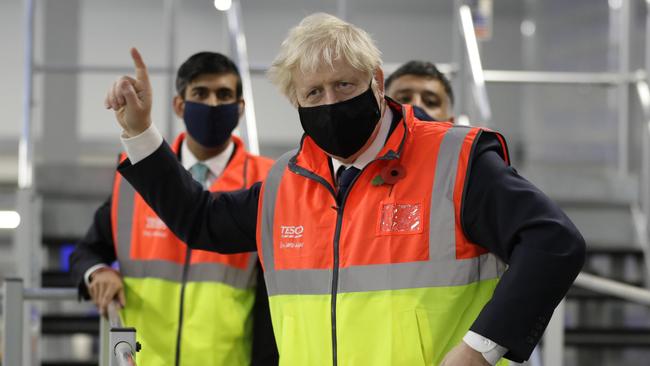
Davies said: “There is a direct correlation between obesity and a high mortality for Covid, and I’m highlighting that, as a nation, one of the reasons we have a problem with our weight ... is because of our structural environment to which advertising, portion size, and many other things come into play.”
In June, Boris Johnson admitted that Britons were Europe’s fattest people bar the Maltese. He recognised his own need to lose weight after requiring intensive care for Covid in April.
He said: “I have taken a very libertarian stance on obesity but actually when you look at the numbers, when you look at the pressure on the NHS, compare, I’m afraid, this wonderful country of ours to other European countries, we are significantly fatter than most others, apart from the Maltese ... It is an issue.”
READ MORE: Greg Sheridan — What conservatives can learn from Trump
Christine Kellett 12.10pm: Andrews flags changes to mask rules
A testing blitz is under way in Melbourne’s northern and western suburbs, as Victorian Premier Daniel Andrews flags possible changes to mask-wearing rules.
Five testing sites have been set up across Hume and Wyndham in a bid to identify any infections in the community, the Sunday Herald Sun reports. Both areas have been virus hotspots in the recent past and residents there have been urged to get tested this weekend.
The state recorded no new cases or deaths for the 16th consecutive day on Sunday.
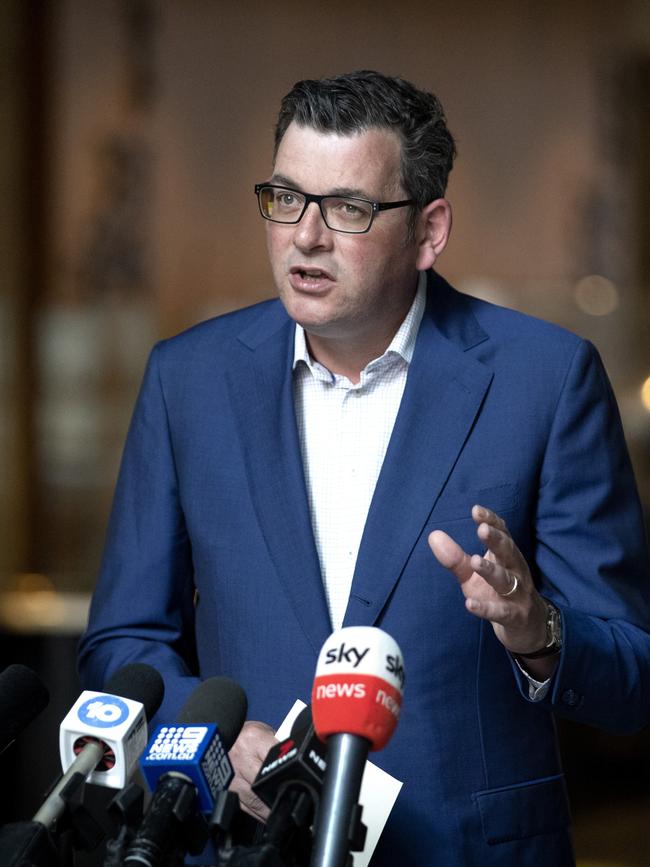
Mr Andrews said he would have more to announce on mask-wearing rules next week, with speculation Victorians may soon be allowed to carry masks while outside and only put them on when coming into contact with others.
“I think that’s probably the first change,” Mr Andrews told a press conference on Sunday.
“That’s not for today. We will hopefully have a bit more to say about masks next week.”
READ MORE: Trumps vows not to go into lockdown despite case surge
Phillip Sherwell 11.40am: WHO alarm as China calls the shot in Covid probe
It is the great riddle of our time: how, when and where did the coronavirus emerge? Even insiders at the World Health Organisation (WHO), which is tasked with finding the answers, are alarmed to discover that China will “call the shots” in providing them.
Eleven months after the first cases of a mystery disease were linked to a Chinese wildlife market, an investigation is finally, if tentatively, under way. But critics have said that the effort, led by the WHO, is too little, too late, and that concessions to Beijing are undermining it.
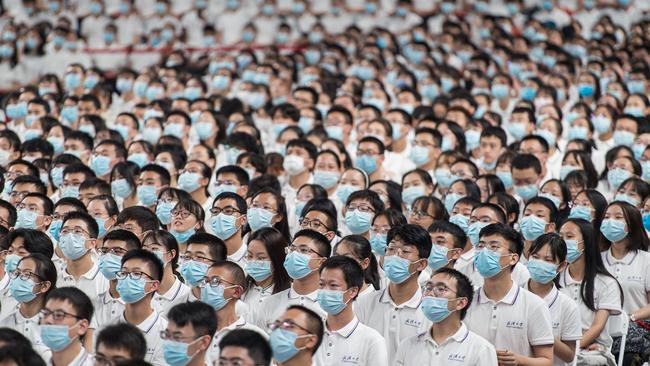
The investigation is a collaboration between a WHO team of foreign experts - approved by Beijing from a list submitted by UN member states - and Chinese scientists.However, there is still no timeline for the international team to enter China and no guarantee whom they may interview, what records they will be able to see and whether they will be allowed to visit Wuhan, the city in central China that was ground zero to the epidemic. Instead, the WHO and Beijing have agreed that Chinese researchers will conduct the early stages of the investigation.
Read the full story here.
Imogen Reid 11am: NSW records another day of zero cases
No new cases of locally acquired COVID-19 were reported in NSW overnight.
Nine infections were reported in an overseas traveller in hotel quarantine, taking the total number of cases in the state to 4306 since the start of the pandemic.
NSW Health has called on people in south western Sydney and north west Sydney to get tested if they have even the mildest symptoms after traces of the virus were found in the state’s sewage surveillance program.
“Fragments of the virus that causes COVID-19 were detected in samples taken on Thursday 12 November from the sewerage system that drains parts of Leppington, Catherine Field, Gledswood Hills, Varroville, Denham Court, West Hoxton, Hoxton Park, Middleton Grange, Horningsea Park, Carnes Hill, Edmondson Park, Prestons and Miller. The catchment takes sewage from approximately 180,000 people,” NSW Health said.
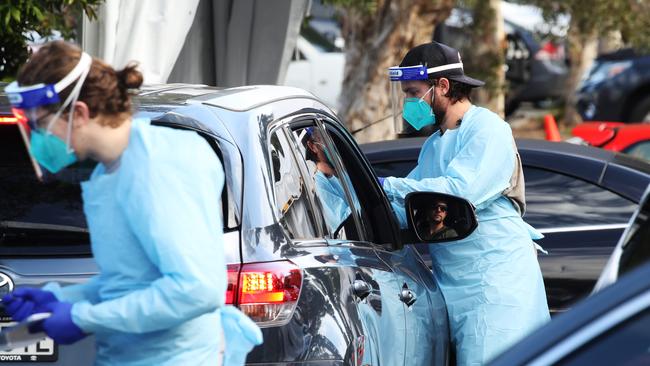
“Additionally, fragments of the virus that causes COVID-19 were also detected in samples taken on Wednesday 11 November from the sewerage system that drains parts of Quakers Hill, Castle Hill, Annangrove, Kellyville, Box Hill, Kenthurst, Glenhaven, The Ponds, Rouse Hill, North Kellyville, Kellyville Ridge, Beaumont Hills, Stanhope Gardens, Baulkham Hills, Glenwood, Bella Vista, Parklea, Acacia Gardens and Norwest.”
The catchment takes sewage from approximately 120,000 people.
NSW Health is concerned there could be other active cases in the local community in people who have not been tested and who might incorrectly assume their symptoms are simply a cold.
READ MORE: Telling Trump straight ‘will kill careers’
Andrew Gregory 10.15am: Covid is a class issue — the poor are dying
Ten months after the coronavirus sneaked into Britain and unleashed hell, one truth remains largely unspoken but is abundantly clear: Covid is a class issue.
Scratch beneath the surface of the arguments over lockdowns and opening up the economy, ignore the noise of the rows over circuit breakers and herd immunity, and the health divide is plain to see. The government’s own coronavirus map illustrates it best.
While large swathes of Britain appear to be breezing through the second wave, with only moderate levels of new cases, the worst affected areas are predominantly working-class districts with high levels of deprivation.
The extraordinary crossover is a tragic but inescapable reality.
Scroll up and down, zoom in and out — everywhere you look the results are the same. The areas with the worst health inequalities before the pandemic, the boroughs, towns and cities more likely to be ravaged by poverty, are the areas that remain the worst hit. Doncaster, where I was born, Preston, where I grew up, and Newcastle, where I trained as a journalist, are three of the hot spots fighting the biggest Covid fires.
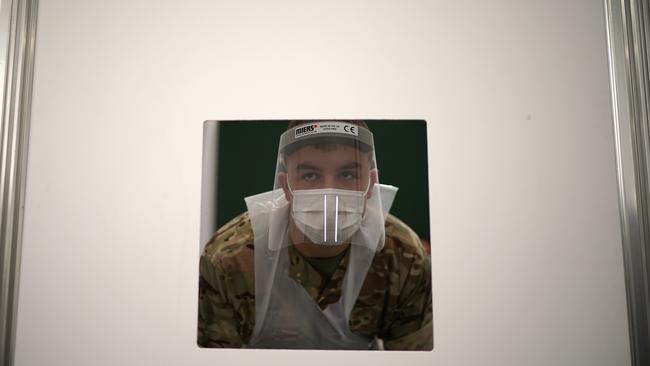
The regions they sit in are the three being walloped hardest by Covid. Case rates per 100,000 remain highest in Yorkshire, the northwest of England and the northeast, confirmed by Public Health England’s latest Covid surveillance report, published on Thursday.
Having to earn a living means many of those in the worst-affected areas have no choice but to put themselves at risk.
The residents of working-class communities are far more likely to have to travel to work in the morning, whether it be to a factory, care home, garage or shop. More often than not, that means using public transport because they are less likely to own a car. Going to work on a bus or a train, and then spending the day sitting or standing next to colleagues, raise their infection risk.
READ MORE: How Bill Ackman dodged a $14bn Covid bullet
Tom Kingston 9.20am: ‘Strange monster’ has city in its grip
Maurizio Di Mauro took three weeks to win his personal battle with coronavirus. As he returned to work at his hospital in Naples he was facing a war.
The director of Cotugno hospital, perched on a hill overlooking a stricken city, resumed working this week amid headlines about seriously ill victims being fed oxygen by medics in the car park after beds ran out.
“We found people in their cars with pneumonia,” he told The Times. The Red Cross is setting up a tent with oxygen supplies to handle the patients.Mr Di Mauro admits that he has no idea how or why the virus can strike hard or not at all, nor how he got it. “It’s a strange monster,” he said. “I don’t understand how some need a ventilator in two hours and others don’t suffer. I have always worn a mask and I have no clue how I got it. Maybe I touched something with the virus on it.”
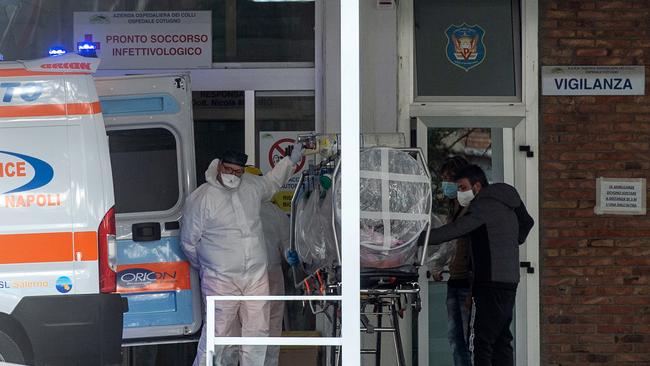
The hospital director is at the centre of Italy’s second wave of the disease, which has put more than 33,000 people in hospital, more than during the dark months of March and April, and is killing about 600 a day.
The relief felt this northern spring as Italy’s tough ten-week lockdown kept the virus away from the underfunded hospitals in the south has turned to horror as Covid storms through Campania, of which Naples is the capital, with more than 2,000 in hospital and daily cases exceeding 4,000.
Read the full story here.
Patrick Commins 8.47am: More Aussies flag desire to come home
States and territories have been asked to provide plans to the Morrison government by the end of the month on how they could quarantine international students on their eventual return, Education Minister Dan Tehan told Sky News.
“What we have asked from all states and territories is for plans (on) how they can accommodate students coming back into the country,” Mr Tehan said.
The university sector was dealt another blow last week after Scott Morrison said National Cabinet had decided there was no viable alternative to hotel quarantine, squashing the hopes that private providers could host an accelerated, COVID-safe return of more than 130,000 foreign students who hold Australian visas but are stuck outside the country.
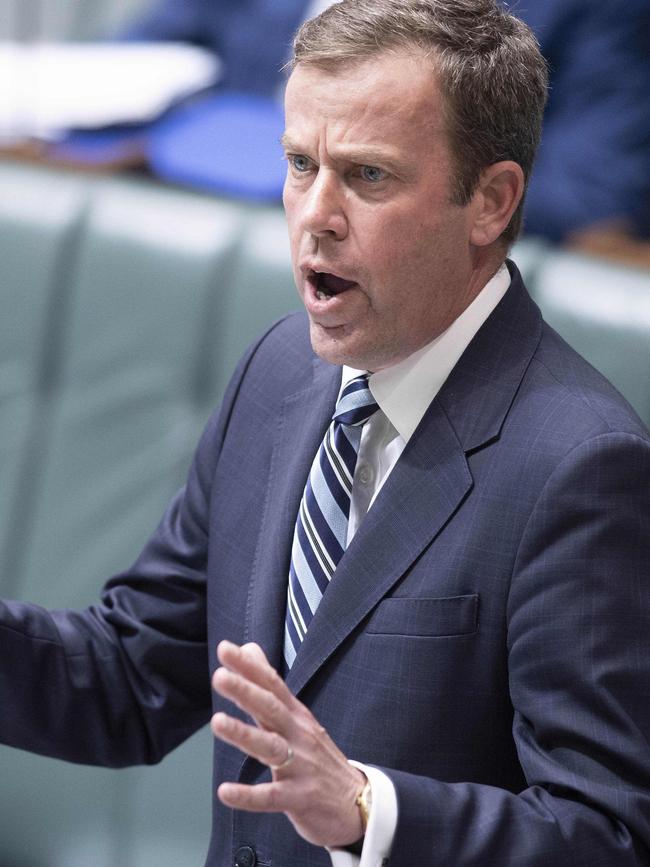
“We continue to explore options with state and territory governments (around a plan to return foreign students) — they are responsible for quarantine,” Mr Tehan said. “We are telling private sector providers of accommodation, ‘go and see your state and territory governments’.”
Mr Tehan confirmed that existing caps on entrants into the country would remain, with the government’s focus on bringing home a growing number of Australians before Christmas.
As the pandemic reignites overseas amid new lockdowns in Europe and the UK, Mr Tehan said Australia had “become a victim of its own success” as more Aussies flag their desire to come home.
Mr Tehan said extra flights were being looked at to meet this growing demand, and that the government was not considering international student returns until that demand from overseas citizens had been met.
The higher education sector is estimated to have shed 10-12,000 jobs since the start of the pandemic, Mr Tehan said, but he said there were no plans for additional financial support at this stage and that the October budget had assumed a very gradual return of foreign students.
READ MORE: Block on foreign students a ‘devastating’ blow
Rachel Baxendale 8.17am: Victoria records another day of zero cases
Victoria’s streak of zero new infections has continued.
The state has recorded its 16th consecutive day without a case being detected, from more than 8,300 tests, according to the Department of Health and Human Services.
Yesterday there were 0 new cases, 0 lives lost and 0 cases with an unknown source. Three active cases remain. There were 8,323 test results received – thanks to all who were tested #EveryTestHelps https://t.co/eTputEZdhs#StaySafeStayOpen#COVID19Vic pic.twitter.com/ZdsQ7toFtA
— VicGovDHHS (@VicGovDHHS) November 14, 2020
Meanwhile, the DHHS is investigating a top provate Melbourne girls’ school over allegations it breached lockdown restrictions by sending Year Nine students to one of its rural campuses on September 16, the Sunday Herald Sun reports.
The school’s principal has said it was given permission.
READ MORE: Nomads shine in giving a helping hand
Chris Smyth 7.50am: Advisers back lifting of UK lockdown in weeks
Scientific advisers to the British government believe that the national lockdown should end in three weeks.
The rise in coronavirus cases is already flattening out, with the R rate - which measures how many other people the average person with the virus infects - between 1.0 and 1.2, meaning that the virus is spreading slowly, if at all. Government experts believe that in some areas of the country R is below one, meaning that the epidemic is shrinking. In the northwest, the official estimate is 0.9 to 1.1.
Members of the Scientific Advisory Group for Emergencies (Sage) increasingly believe that the Tier 3 regional restrictions that had been imposed in the northwest and elsewhere worked. The Times understands that an official survey found that the rules cut people’s daily contacts by a third and were twice as effective as previous local measures.
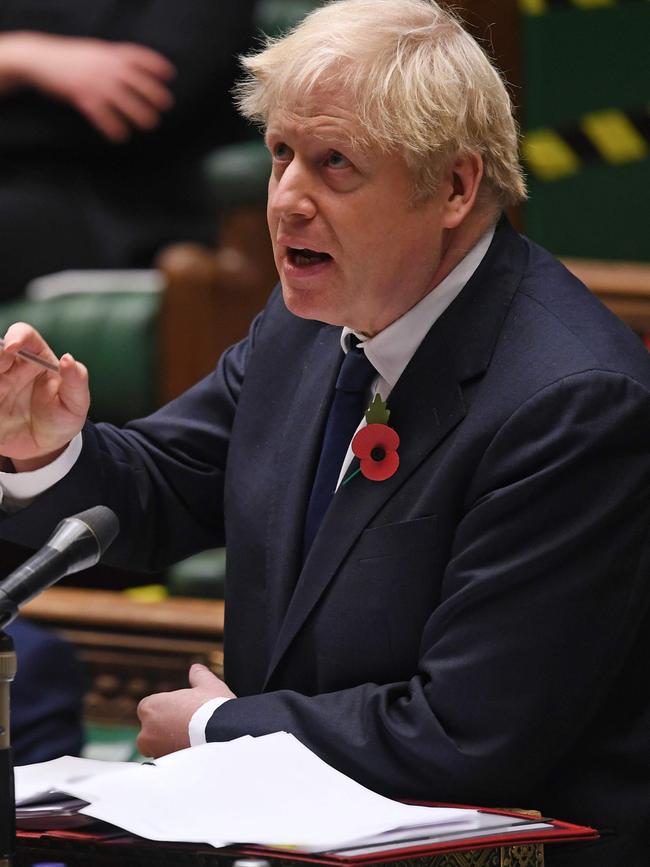
The evidence has boosted hopes that an adjusted tier system after the national lockdown could stop cases rising again, although advisers believe that Tier 1 restrictions, which allowed people to meet indoors in groups of up to six, were largely useless.
Boris Johnson has been adamant that lockdown will end on December 2, but advisers including Chris Whitty, the chief medical officer for England, have been more cautious until now.
Scientists used data from Comix, a survey of the daily contacts of representative samples of thousands of people, to produce the clearest evidence yet that the top tier of restrictions had a significant impact.
READ MORE: Angela Shanahan — ABC hatchet job a political ‘gotcha’
Agencies 7.15am: Trump supporters mass as US cases hit new high
Thousands of Donald Trump supporters rallied in Washington on Saturday, with the president making a drive-past in his motorcade as he sticks to discredited claims that mass fraud denied him election victory.
Marchers close to the White House greeted Trump’s brief appearance with wild cheers, waving and whistles, holding signs and flags saying “Best prez ever,” “Stop the steal” and “Trump 2020: Keep America Great.” Several thousand people had gathered by noon on the city’s Freedom Plaza, with more still arriving from all sides, waving flags and shouting “Four More Years” in a festive atmosphere reminiscent of a Trump rally.
With right-wing militia group the Proud Boys also among those rallying, a large security presence was deployed in the capital to prevent clashes with anti-Trump events scheduled outside the Supreme Court.
The march comes after Mr Trump yesterday broke his silence after a week without on-camera comments, speaking at a Rose Garden event to herald the imminent authorisation of a coronavirus vaccine.
During a short speech about the vaccine work, Mr Trump insisted that he would never again call for a lockdown to curb the virus’s spread.
Read the full story here.
Agengies 6.30am: Restrictions tighten across Europe as virus runs rampant
A swathe of new restrictions to curtail a second wave of coronavirus infections were announced or came into force from Austria to Greece, Italy to Portugal on Saturday as the global death toll climbed above 1.3 million.
More than 53 million have been infected worldwide by COVID-19, which is running rampant throughout America and Europe, forcing governments to take more drastic action despite the potential economic devastation.
Austria joined a growing trend announcing schools and non-essential shops would close from Tuesday, just two weeks after a partial lockdown was imposed.
“There are still many who say that infections don’t happen at school, in shops or services,” Chancellor Sebastien Kurtz told a news conference.
“But the truth is the authorities can no longer trace 77 percent of new infections, which means they no longer know where contamination is happening.”
Greece, battling a saturated national health system, announced it would shut all schools after imposing a nationwide night curfew from Friday.
“Closing elementary schools was the last thing we wanted to do. This is a measure of how serious the situation is,” Health Minister Vassilis Kikilias said. Secondary schools had already been shuttered.
In Italy, the regions of Tuscany and Campania — of which Florence and Naples are the respective capitals — plunged into “red zones” of tough restrictions, which now cover 26 million of the 60 million population.
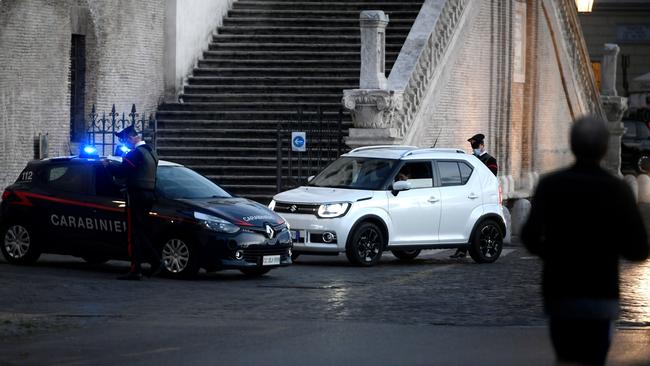
“There is no other way if we want to reduce the numbers of dead,” Health Minister Roberto Speranza said, as the country’s death toll rose by 544 to 44,683, one of Europe’s worst.
New anti-virus curbs also came into force in Ukraine on Saturday, with all non-essential businesses ordered closed for the weekend.
And Lebanon entered a new two-week lockdown, with hospitals in the crises-wracked country almost at capacity.
Bars in New York, the epicentre of the US’s spring outbreak, were ordered to close at 10pm from Friday. Schools could move to online only teaching as early as Monday.
The United States, the country hardest hit by COVID-19, saw 188,858 more cases and 1,596 more deaths Friday, according to Johns Hopkins University.
The novel coronavirus has killed at least 1,305,039 people since emerging in China late last year.
READ MORE: Washington trapped in the twilight zone
John Lyons 6am: US daily record surges to 184,514 cases
The number of newly reported coronavirus infections in the US surged to another record Friday, notching a 20 per cent increase from the tally a day earlier.
The 184,514 newly reported infections, according to data compiled by Johns Hopkins University, bring the U.S. total to more than 10.8 million. The U.S. reported 153,496 cases on Thursday.
The number of people dying in the U.S. of Covid-19, the disease caused by the coronavirus, is increasing as well. More than 1,400 deaths were reported on Friday, according to Johns Hopkins data, the highest death toll in 10 days. However, that number remains lower than the 2,606 peak in daily deaths recorded in April. All told, more than 244,000 people have died of the disease in the U.S.
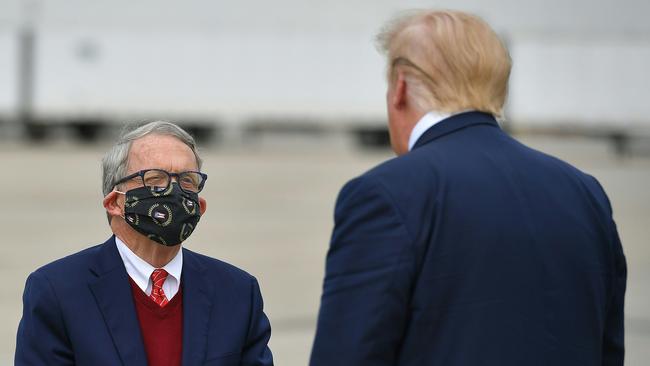
States in the Midwest are being hit particularly hard, including Ohio, Indiana, Iowa, Oklahoma, Nebraska and the Dakotas.
With the U.S. reporting more than 100,000 new cases each day over the past 10 days, governors, mayors and other officials this week unveiled new measures to help curb the pathogen.
“It’s on fire. We’ve got to slow it down,” Republican Ohio Governor Mike DeWine told The Wall Street Journal. “We’ve never seen anything like this. Our spring surge and summer surge were nowhere like this.”
Wall Street Journal
Paige Taylor. Paul Garvey 5.45am: Celebrations as Western Australia border reopens
The dismantling of the nation’s strictest border controls has begun, with Western Australia opening itself back up to all states and territories except Victoria and NSW.
From Saturday morning, people from Tasmania, Queensland, South Australia, the ACT and the Northern Territory no longer need an exemption to enter WA and they no longer need to spend two weeks in quarantine when they arrive.
Western Australia could open up to Victoria by the end
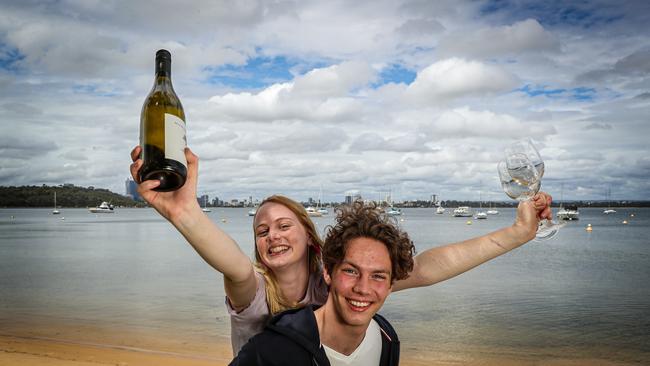
of November and to NSW by early December if those states continue their run of zero cases. WA premier Mark McGowan has repeatedly refused to commit to ease all domestic travel restrictions by Christmas but says the last of WA’s domestic borders will come down once all states achieve 28 days without a case of community transmission. Victoria has not recorded a locally-acquired case for 15 days and NSW has not recorded a locally-acquired case for a week.
WA‘s tough border controls created extra income for Perth nurse Emmanuelle Lamond - at the beginning of the pandemic she was stationed at Perth airport conducting Covid tests on fly-in, fly-out mine workers. But Ms Lamond, 21, was looking forward to her state effectively rejoining the rest of Australia. She and her friend Rynhardt Dohse, a 19-year-old medical student, welcomed the beginning of the end of a regime that has stoked separatist sentiment, hurt business and kept families apart for 223 days.
Ms Lamond’s grandfather Frankie turned 90 during the pandemic in Griffith, NSW.
Read the full story here.
Eli Greenblat 5am: Covid delay to Santa’s sleigh
It’s enough to make the toy industry take its bat and ball and go home. A recession combined with rising unemployment and the uncertainties around COVID-19 are testing the stress levels of the $750m Australian toy sector just at a time when it should be celebrating the arrival of Christmas and marketing the latest must-have toy to frazzled parents.
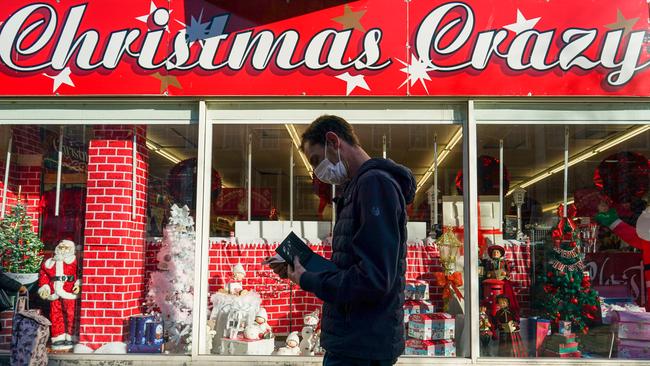
But as with most industries, the pandemic has changed everything. On the demand side, the first recession in 30 years as well as a lack of blockbuster movies in the cinemas as Hollywood puts its new releases on ice is shaking the confidence of the toy sector and potentially sapping the interest in toy purchases.
To be sure, the home lockdowns since March have inspired purchases of toys, jigsaw puzzles and other games but there is the fear this has pulled forward Christmas purchases with cupboards and kids’ rooms full up. The Christmas period usually accounts for 50 per cent of total annual toy sales, but Australia’s industry experts have reported “lockdown related” sales figures in line with peak Christmas levels, experiencing increases of 20 per cent to 80 per cent against the same time last year.
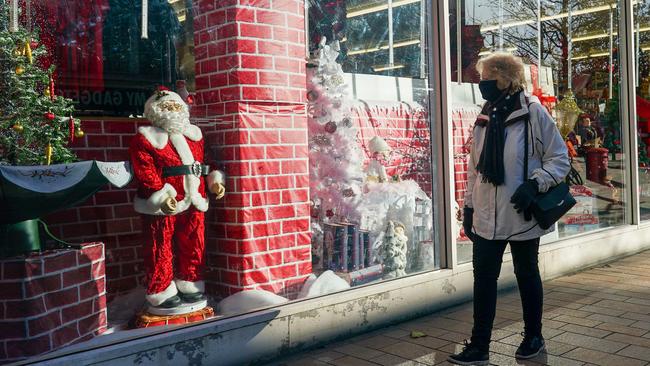
Read the full story here.


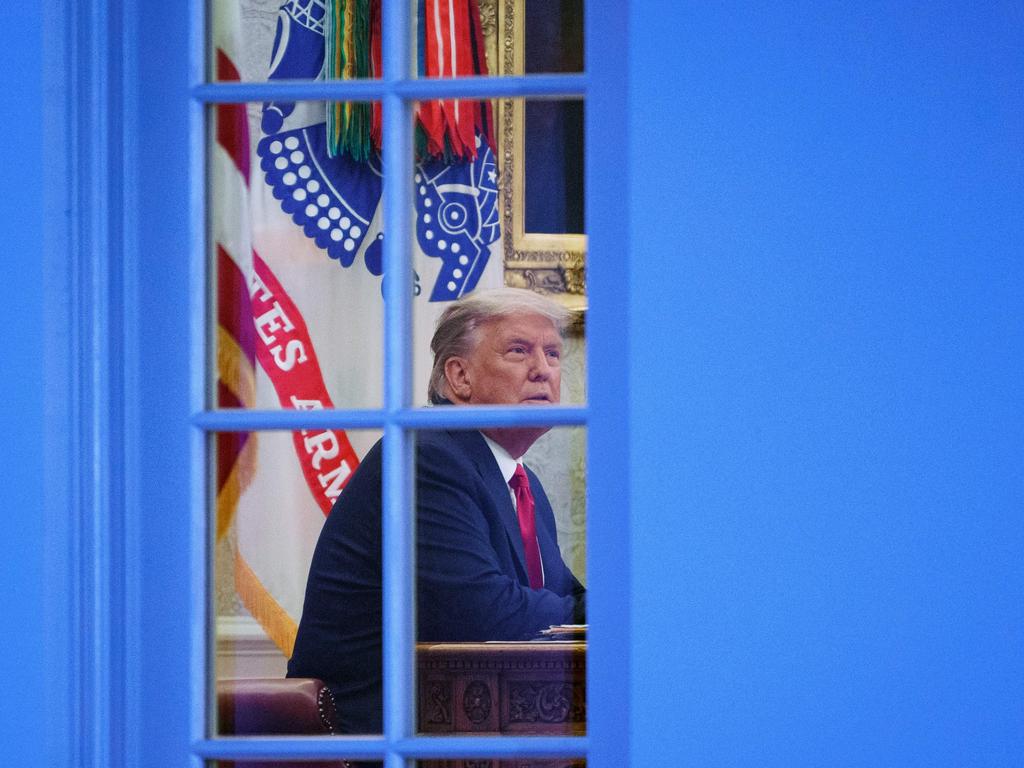


To join the conversation, please log in. Don't have an account? Register
Join the conversation, you are commenting as Logout